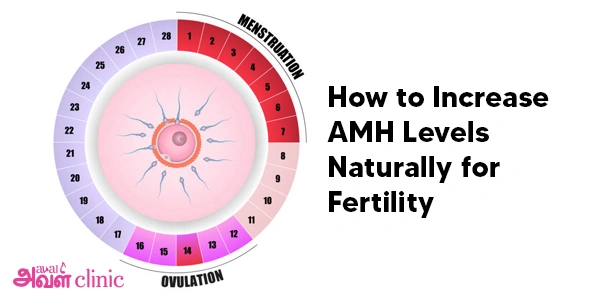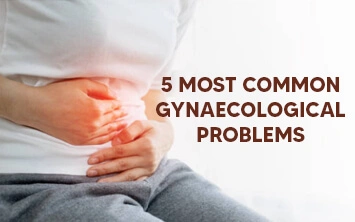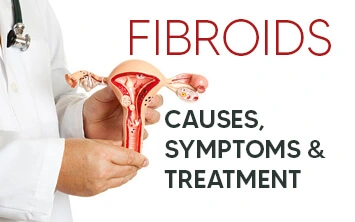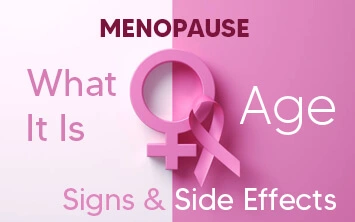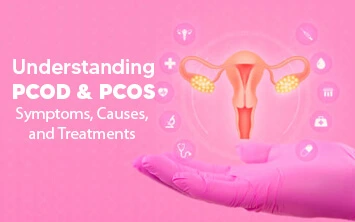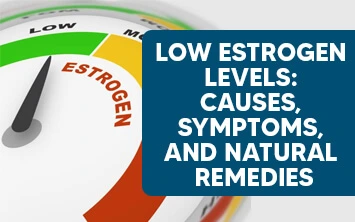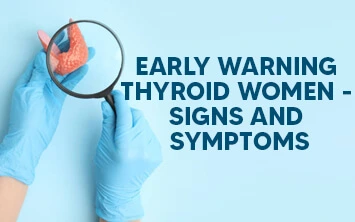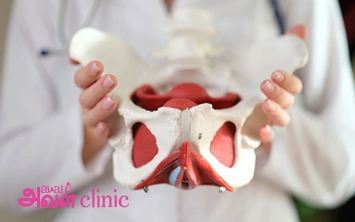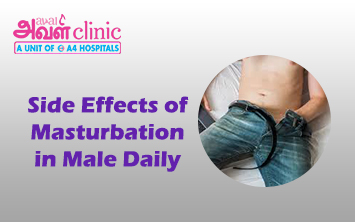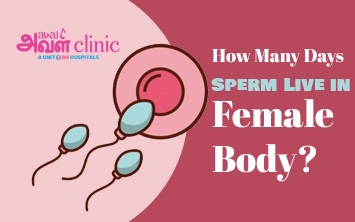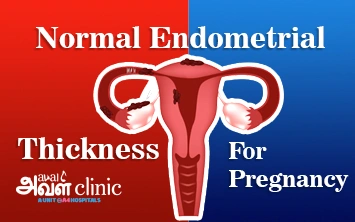Published on: May 21, 2025
Author: Admin
Women with a decreased amount of AMH can experience abnormal menstrual cycles and difficulty conceiving. However, the decline in AMH levels may alone not be the significant influential factor for your infertility. Experts claim that many women have achieved successful conception even with low AMH levels. The levels can be determined through a simple blood test, which measures the remaining follicles in the ovaries.
Even though the AMH test can primarily measure ovarian reserve by indirectly assessing the number of existing follicles, it cannot measure their quality. However, the test is helpful for many infertile couples to recognise the best strategies to achieve conception.
To women who wonder how to increase AMH levels, we suggest scrolling down this page to keep yourself informed of what you need the most at this time.
Understanding Anti-Müllerian Hormone (AMH) and Fertility
Fertility and AMH are closely associated with one another. The decline in AMH level may not alone be the significant factor for infertility. Other factors like genetics and uterine conditions, may also contribute to infertility in couples.
However, studies show that fertility treatments like IVF may be the right choice for couples with higher levels of AMH. This is because a woman with higher levels of AMH may respond better to hormonal medications. This can predominantly enhance their success rates.
On the other hand, a woman with lower levels of AMH may indicate decreased ovarian follicles, potentially resulting in minimised chances of success.
How to Increase AMH Levels
While there is no specific low AMH treatment, you can increase its level naturally by adapting to certain changes in your lifestyle.
Many women often wonder, How to increase AMH levels naturally?
Listed below are some of the tips to increase AMH levels naturally to get pregnant. They are:
Consuming nutritious food
Consuming nutrient-rich food is an essential factor for supporting overall health, particularly reproductive health.
You can focus on consuming nutritious and balanced food such as vegetables and fruits, lean proteins, and whole grains to improve the AMH levels. When it comes to enhancing the quality of the follicles, experts suggest including certain nutrients, which may include:
- Folic acid – Foods that are rich in folic acid may include legumes, spinach, chickpeas and more, which can significantly enhance the production of eggs.
- Coenzyme Q10 (CoQ10) – They are well-known for preserving ovarian reserve and improving its quality as well. Many fertility experts recommend having CoQ10 as a supplement. Foods that are rich in CoQ10 may include organ meats, nuts and seeds, poultry and legumes.
- Vitamin D – Plays a key role in enhancing fertility health. Vitamin D can generally be gained from sunlight, supplements, or fortified foods. The nutrient helps to increase ovarian reserve.
- Protein – Including protein, especially plant-based proteins such as legumes, can be helpful for overall reproductive health. The consumption of adequate protein can improve egg quality, regulate hormones, and improve cell growth and repair in the reproductive organs.
- Healthy Fats – Healthy fats are essential for fertility. They are found in nuts and seeds, avocados, extra virgin olive oil, and oily fish. The nutrient is helpful to improve egg quality, regulate the menstrual cycle, and hormone production.
- Antioxidants – adequate consumption of antioxidants can prevent eggs from damage caused by oxidative stress. Experts claim that the nutrient also plays a key role in increasing live birth rates.
Managing stress
While stress does not have a negative impact on fertility directly, they do disrupt the woman’s ability to conceive quickly. In addition, it may also disrupt the success rates of assisted reproductive technologies (ART) like IVF. Chronic stress can primarily impact hormonal balance, menstrual cycle, and affect ovulation. In men, the stress may also contribute to have a negative impact on the production of sperm.
Practising Yoga, meditation, mindfulness, therapy, or acupuncture may widely help with reducing stress and supporting fertility, according to the recent study.
Exercising moderately
How to increase AMH?
Exercising moderately can help increase AMH levels. Regular, moderate exercise can significantly enhance the chances of conception in women. This is because moderate exercise can help with regulating ovulation and menstruation, leading to improved success rates of fertility treatments like IVF. On the other hand, excessive exercise can potentially disrupt the regulation of ovulation as well as the menstrual cycle. Hence, focusing on moderate activities like swimming, cycling, or walking can be the game changer.
Maintaining a healthy weight
Maintaining your ideal body mass index (BMI) is significant when it comes to achieving pregnancy. BMI is important since both overweight and underweight can disrupt the hormone regulation and ovulation.
Considering supplements
Considering including supplements is one of the best ways to increase AMH levels. According to recent research, certain supplements can support ovarian reserve and improve egg quality. They are:
- DHEA – The full form of DHEA is Dehydroepiandrosterone. The supplement is helpful to increase the chances of conception by enhancing ovarian function. It is also helpful to lower the miscarriage rates. Experts claim that the regular consumption of DHEA can improve ovarian reserve.
- Omega-3 Fatty Acids – The consumption of omega-3 fatty acids as a supplement can predominantly help with enhancing egg quality and supporting the production of healthy hormones. The supplement is also helpful to reduce inflammation and improve the health of the uterine lining, which is significant for achieving successful implantation.
- Coenzyme Q10 (CoQ10) – The supplement is suggested by the healthcare provider to enhance the chances of achieving successful consumption, especially in women with low AMH levels. It is also helpful to prevent oxidative stress, which is a common cause of infertility.
- Vitamin D – Vitamin D supplementation may enhance fertility outcomes by increasing ovarian function and hormonal regulation.
- Folate – This supplementation plays a key role when it comes to fertility. Folic acid is suggested by many healthcare providers, specifically during early pregnancy. It involves enhancing the quality of eggs.
Note that all of the above-mentioned supplements should be taken only after having the consultation with the healthcare provider.
Exploring fertility treatments
To deal with fertility issues, experts suggest that couples explore fertility treatments in various situations. They may significantly help with providing a positive outcome when natural conception is difficult, especially for the woman with low AMH levels.
- Ovulation Induction – Ovulation induction may be the first line of fertility treatment, especially for the woman with abnormal ovulation. It involves medications like Letrozole or Clomid. These medications may stimulate the ovaries to develop more eggs. A healthcare provider may prescribe these medications for women with low AMH levels.
- In Vitro Fertilisation (IVF) – IVF may be the right option for women with severely compromised ovarian reserve. Your healthcare provider may suggest the most appropriate method to achieve successful conception with or without egg donation.
Minimising toxin exposure
Toxins present in the environment, like pesticides and plastics, can have a negative impact on hormonal health. Hence, experts recommend using BPA-free products instead of plastics and choosing organic fruits and vegetables. Furthermore, replacing chemical care products with natural cleaning products can significantly help enhance reproductive health.
Being patient and informed
To answer the question of how to increase anti-mullerian hormone among many women, having patience is one of the significant factors.
It is essential to recognise that treatments that are associated with fertility, especially with low AMH levels, can be frustrating but not impossible. Having a regular consultation and proper follow-up with your healthcare provider is significant. This can help customise the treatment according to your health and circumstances. Also, it is suggested not to hesitate to ask any queries regarding the treatment to your healthcare provider, like how to increase AMH levels in females naturally, and so on.
Avoiding smoking, drinking alcohol, and substance abuse
Unhealthy choices are strongly associated with diminished fertility and hormonal fluctuations. It may significantly disrupt your reproductive health. In addition to avoiding unhealthy choices, having an adequate amount of sleep can contribute to enhancing overall health.
Summary
Determining a woman’s anti-müllerian hormone (AMH) levels through an AMH test can help individuals make the most informed decisions on conception strategies and fertility planning. The AMH test is a method to measure remaining follicles in a woman’s ovaries, which is an indicator of ovarian reserve. Normal AMH levels in females may broadly change from 1.0 - 4.0 ng/ml. This information may help couples make decisions on choosing the methods of conception. The methods may include natural conception, assisted reproductive technologies (ART) like IVF, or sometimes even freezing the eggs for delayed pregnancy.
For women struggling to conceive with low AMH, choosing the right lifestyle choices, certain supplements prescribed by the healthcare provider, managing stress, and moderate exercises can predominantly support your fertility health.

